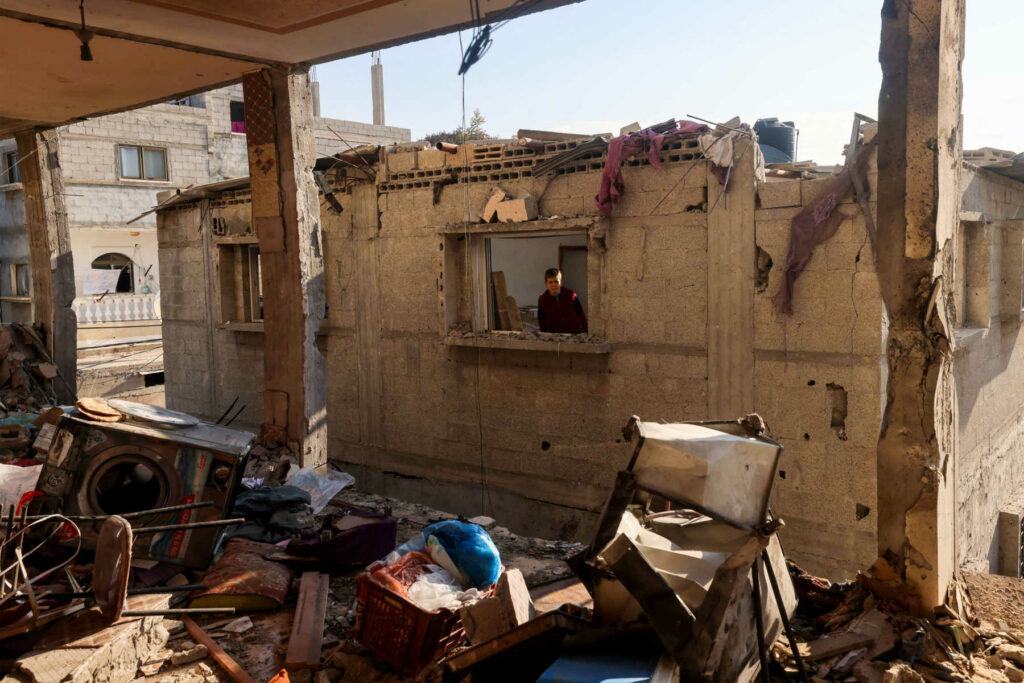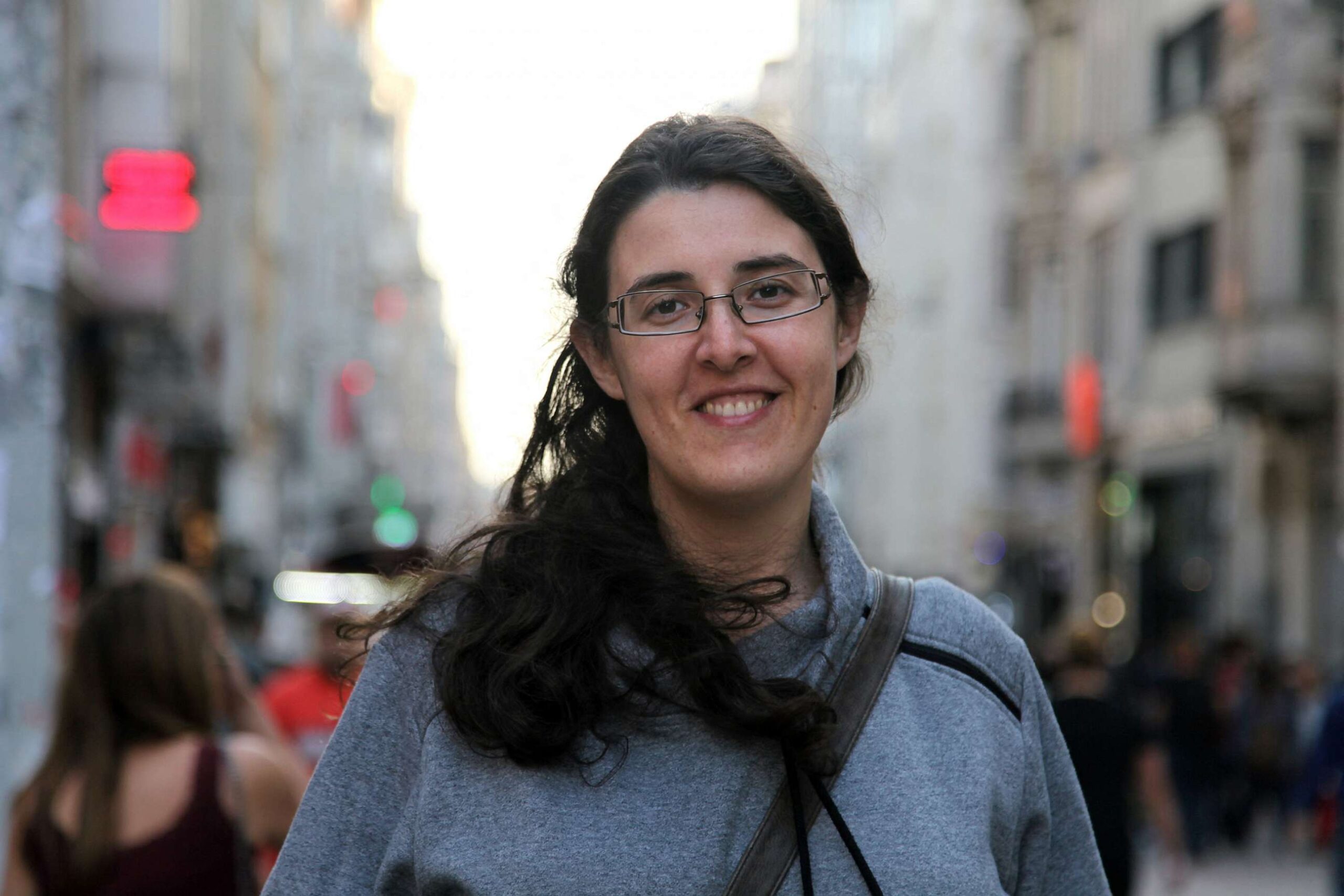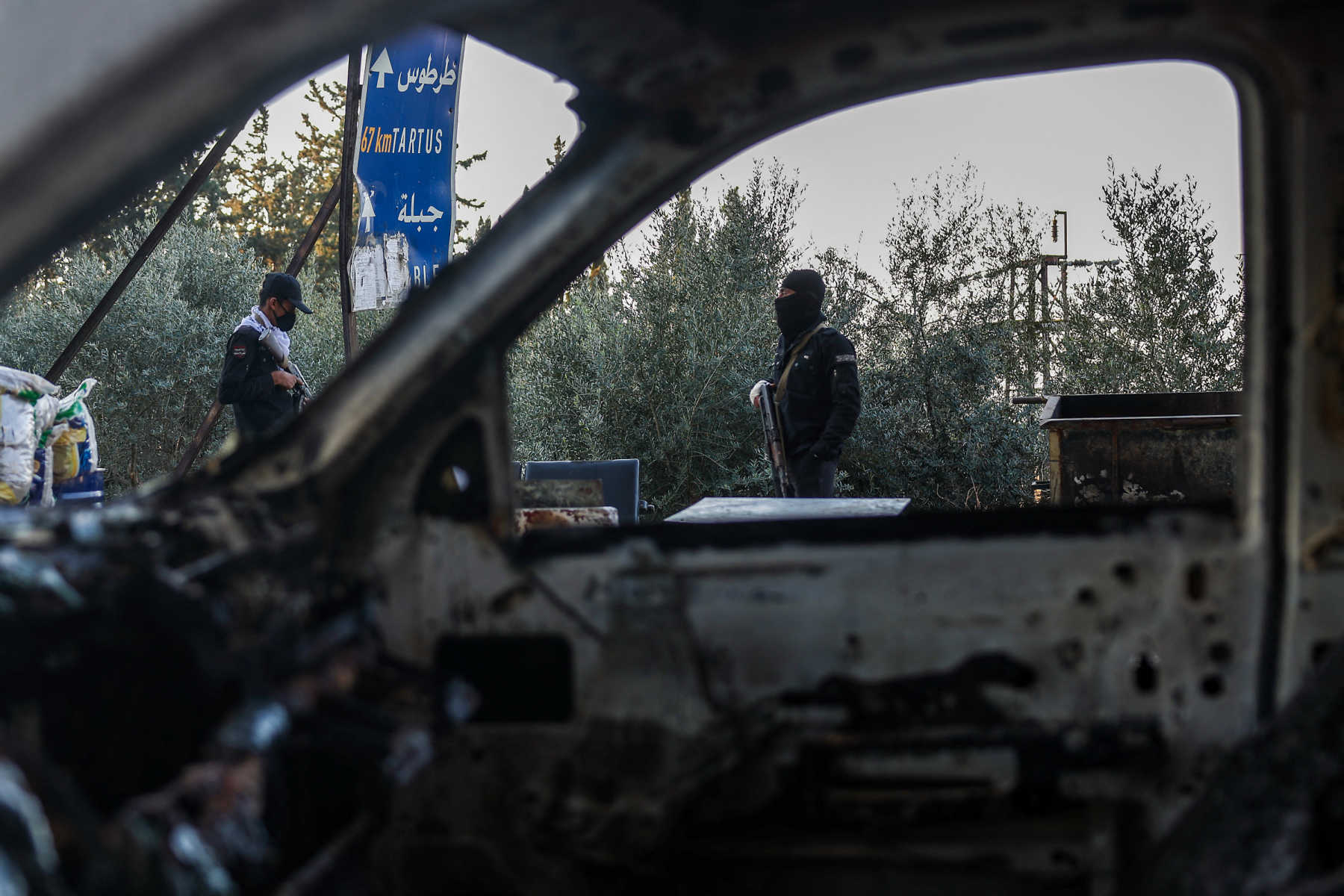Ahmed Alnaouq is a journalist from Gaza. He co-founded We Are Not Numbers, which helps young people in Gaza share their stories, and Border Gone, which publishes stories from Gaza in Hebrew. He works as an advocacy officer for the Euro-Med Human Rights Monitor.
I was born in 1994 in Deir al-Balah, Gaza. A small city, population around 80,000. It's not London or New York. There are few lights or towering buildings. But it's my home and I always loved it. The palm trees lift me. They are everywhere. If you climb to a high area in Deir al-Balah, it's all you see: hundreds of palm trees.
Most of the residents are farmers, or used to be. In Gaza, we joke that Deir al-Balah is the city where everyone goes to sleep at 7. Farmers can't lie in. My father was also born there. But like most in Gaza, my family hails from towns and cities that were destroyed or ethnically cleansed to make way for Israel.
My father's relatives lived in Yafa. The area is known today for the metropolis of Tel Aviv. My mother came from Beersheba. An Israeli city now. A few months before my father was born, in 1948, some 750,000 Palestinians were driven from their homes in what is now Israel. My forebears fled to Gaza and our fate was sealed.
When my father was born, his grandfather went to the marketplace to fetch him a doctor. An Israeli airplane appeared from nowhere and bombed the market, killing 150 people, just like that. My great-grandfather was among them. You will search the records in vain for mention of this. Only a few Palestinians in Deir al-Balah still remember. Many such massacres have been erased from history. That's why the world is surprised when Palestinians, sometimes, fight back.
My father lived his whole life in Deir al-Balah. He was one of the smartest people I ever met. He had a photographic memory: at 75-years old, he could recite passages from textbooks he studied in elementary school. He spoke Hebrew, English, and Arabic, despite having been unable to attend university. Gaza didn't have one at the time, and anyway, he had family to support after his own father died.
When Israel occupied Gaza in 1967, it hollowed out the economy to make us dependent. Most Gazans could either work in Israel or not at all. I remember my father waking up at 2 in the morning to a catch a bus into Israel for work. He wouldn't return until 7 in the evening. He did this every day, despite having to endure humiliations from his boss and from Israeli soldiers at the checkpoints.
There was no Hamas then. But the spirit which feeds it sprung from the degradation and physical abuse men like my father went through. Israeli soldiers would sometimes detain Palestinian laborers for hours, or order them to strip naked, just for their amusement. My mother was always worried for my father's safety. She spent her evenings by the window, awaiting his return.
Why was my family eliminated? There was no reason. Were militants there? No. Were rockets there? No. They turned my home into ash and vaporized the life from those people because they were Palestinian.
- Ahmed Alnaouq
My father shared a story when I was about 5 that I can never forget. His Israeli boss told him, "God created only Israelis as humans; the rest of the world were animals, created to serve them. But the early Israelis were disgusted with the animals, so they asked God to transform them into human-like beings. And that's how you all came to be." It seems many in Israel still don't view Palestinians as fully human. In October 2023, Israel's defense minister Yoav Gallant ordered a "complete siege" on Gaza: "no electricity, no food, no water, no fuel." "We are fighting human animals," he said, "and we are acting accordingly."
The second intifada erupted in 2000, when I was 6. Israel stopped allowing Palestinians to cross from Gaza to find work. Just like that, my father lost his job, so he bought a car and found work as a taxi driver. Another joke in Gaza: everyone is a taxi driver, because there are no other jobs around. Like every Palestinian revolt, the second intifada was a reaction to Israel's suffocating restrictions. People from abroad should try to understand: when you are forced to live under military occupation, when you are constricted, confined, and controlled, with no end in sight, you will push back, and may even, at times, lash out.
The second intifada period was formative for me. I began to understand what was going on, what I had been born into. On my walks to school, I saw protests, and funerals. I remember an Israeli tank invading Deir al-Balah, my city, and killing people in its tracks. Apache helicopters and M-16s supplied the soundtrack. Of course, my friends and I played, too. But our dominant memories are of violence.
One day my older brother, Ayman, came back more scared than usual. He was trembling. "Ayman, what happened?" He had been walking in the street when, just like that, a tank killed six of his friends, all 13 or 14 years old. "Why?" All he could say was that the tank shot everyone in its path.
This memory is joined by others. Muhammad al-Durrah, from the Buraij refugee camp in Gaza, was killed by Israeli bullets while his father tried to shield him with a hug. We saw it on TV. And there was Iman Hajjo, 3 months old, from my city. An Israeli tank fired, and Iman was killed in the arms of her mother. Just like that. One day my brother went missing, and my mother was beside herself. A neighbor told her, "We saw an Israeli man killing your son." Fortunately, this was untrue. We survived.

The intifada ended and Israel withdrew its settlers from Gaza. We could now move more freely. But when Hamas won elections in 2006, Israel put Gaza under a blockade. Israel always claims it does not target civilians. But who is hurt when food, water, gas, and electricity are limited?
I was 12 when the borders were sealed. I remember my father collecting firewood every morning so he could make food for us. The siege sent us back hundreds of years. But we still had television, to remind us how others lived. Almost all the factories in Gaza closed. Farmers stopped working for lack of fuel, fertilizer, and spare parts. My father, still driving his taxi to support us, resorted to vegetable oil for gas. Israeli technicians calculated the minimum number of calories we needed to survive, and only that much food was allowed in.
On Dec. 27, 2008, Israel launched its first major assault on Gaza. I was in the ninth grade, waiting nervously for an exam. I had not studied much and was worried about how it would go. Suddenly, I heard loud explosions outside the school. My first thought was, It's Yawm al-Qiyamah. Judgment Day. I heard screams and saw fire and smoke in the sky. I had never been so close to a bombing. As I ran home, I saw corpses in the streets, blood everywhere.
In the end, 1,400 Palestinians were killed in that war. Five thousand more were injured. And 60,000 homes were damaged or destroyed. When the bombardment ceased, after three weeks, we tried to pick up the pieces of our lives. But then, in 2012, another war. About a hundred people killed in just over a week. And in 2014, they came again. This one lasted 51 days. The bombing was everywhere and did not stop. This time, my family did not escape.
My brother was killed, along with six of my friends. He was my closest companion. We grew up together, and now I was 19, and he was gone. Just like that. My last memory of him is his face covered in blood. As for my friends, they were buried under the rubble for eight days. When their bodies were eventually retrieved, during a "humanitarian pause," they had already begun to decompose.
I was never the same after that war. I spent my days beside my brother's grave. When an American friend, Pam, reached out to me on Facebook, I told her "I'm fine." She insisted, "No, tell me something real." And my feelings poured out. She encouraged me to write about Ayman, to celebrate his life. With her coaching, I wrote my first story in English—about my brother—and she published it.
That was a turning point for me. My story was read by many people, some of whom reached out to learn more about Palestine and offer support. I realized the power of words to educate people abroad, to show that we are more than mere statistics. Pam and I set up a platform, We Are Not Numbers, pairing young people in Gaza with writing mentors from around the world.
Many of my relatives were left for days under the rubble. One family member went to my home to recover the pieces.
- Ahmed Alnaouq
In 2023, Gaza entered its 17th year under Israeli blockade. There was no hope of relief. Then Hamas launched an attack that reportedly killed 1,200 Israelis, and Israel retaliated with its most devastating assault on Gaza yet. I had settled in London after studying in the U.K. on a scholarship, but was on holiday in Turkey when the bombing started. Unlike in 2008, 2012, and 2014, I was away from my family during a war. I worried about them constantly.
Most of my relatives gathered at my father's place in Deir al-Balah. It was in a residential neighborhood, with no military installations or warehouses nearby. If anywhere was safe, we thought, it's there. I called them every day, asking how they were. "We're fine, we're OK." They were running out of food and water, though. "The situation is very difficult," they admitted—"but we're together. Together, we'll be OK."
They were asleep when, on Oct. 22, at 5 in the morning, some Israeli pilot dropped a bomb on our house. Just like that. My family wiped out.
My father, Nasri Alnaouq, aged 75.
My sister Walaa, 36, and her children: Raghd, 13; Eslam, 12; Sara, 9; and Abdullah, 6.
My sister Alaa, 35, and her children: Eslam, 13; Dima, 12; Tala, 8; Noor, 4; and Nasmah, 2.
My sister Aya, 33, and her children: Malak, 12; Mohammed, 9; and Tamim, 6.
My oldest brother, Muhammad, 35, and his children: Bakr, 11, and Basema, 9.
And Mahmoud, 25, a human rights activist who had just been admitted to a master's program in Australia. My little brother.
Why was my family eliminated? There was no reason. Were militants there? No. Were rockets there? No. They turned my home into ash and vaporized the life from those people because they were Palestinian. Because the occupation decreed that a decent life is not for us, and if we demand it, then life is not for us.
Many of my relatives were left for days under the rubble. One family member went to my home to recover the pieces. He put these remains that were once my nieces and nephews, brothers and sisters in a trash bag and gave it to my sister. Just like that. For me, and my surviving family, this is an epic tragedy. It is also an epic tragedy for the world. Because what the world let happen to Gaza, in 2023 and before 2023, is a stain that can never be removed.
Editor's note: This essay is excerpted from Deluge: Gaza and Israel from Crisis to Cataclysm, edited by Jamie Stern-Weiner, which was recently published by OR Books.
















![Security forces loyal to the interim Syrian government stand guard at a checkpoint previously held by supporters of deposed president Bashar al-Assad, in the town of Hmeimim, in the coastal province of Latakia, on March 11, 2025. Syria's new authorities announced on March 10, the end of an operation against loyalists of deposed president Bashar al-Assad, after a war monitor reported more than 1,000 civilians killed in the worst violence since his overthrow. The Syrian Observatory for Human Rights said the overwhelming majority of the 1,068 civilians killed since March 6, were members of the Alawite minority who were executed by the security forces or allied groups. (Photo by OMAR HAJ KADOUR / AFP) / “The erroneous mention[s] appearing in the metadata of this photo by OMAR HAJ KADOUR has been modified in AFP systems in the following manner: [Hmeimim] instead of [Ayn Shiqaq]. Please immediately remove the erroneous mention[s] from all your online services and delete it (them) from your servers. If you have been authorized by AFP to distribute it (them) to third parties, please ensure that the same actions are carried out by them. Failure to promptly comply with these instructions will entail liability on your part for any continued or post notification usage. Therefore we thank you very much for all your attention and prompt action. We are sorry for the inconvenience this notification may cause and remain at your disposal for any further information you may require.”](https://dawnmena.org/wp-content/uploads/2025/04/syria-22039885951-350x250.jpg)










![Security forces loyal to the interim Syrian government stand guard at a checkpoint previously held by supporters of deposed president Bashar al-Assad, in the town of Hmeimim, in the coastal province of Latakia, on March 11, 2025. Syria's new authorities announced on March 10, the end of an operation against loyalists of deposed president Bashar al-Assad, after a war monitor reported more than 1,000 civilians killed in the worst violence since his overthrow. The Syrian Observatory for Human Rights said the overwhelming majority of the 1,068 civilians killed since March 6, were members of the Alawite minority who were executed by the security forces or allied groups. (Photo by OMAR HAJ KADOUR / AFP) / “The erroneous mention[s] appearing in the metadata of this photo by OMAR HAJ KADOUR has been modified in AFP systems in the following manner: [Hmeimim] instead of [Ayn Shiqaq]. Please immediately remove the erroneous mention[s] from all your online services and delete it (them) from your servers. If you have been authorized by AFP to distribute it (them) to third parties, please ensure that the same actions are carried out by them. Failure to promptly comply with these instructions will entail liability on your part for any continued or post notification usage. Therefore we thank you very much for all your attention and prompt action. We are sorry for the inconvenience this notification may cause and remain at your disposal for any further information you may require.”](https://dawnmena.org/wp-content/uploads/2025/04/syria-22039885951-360x180.jpg)









